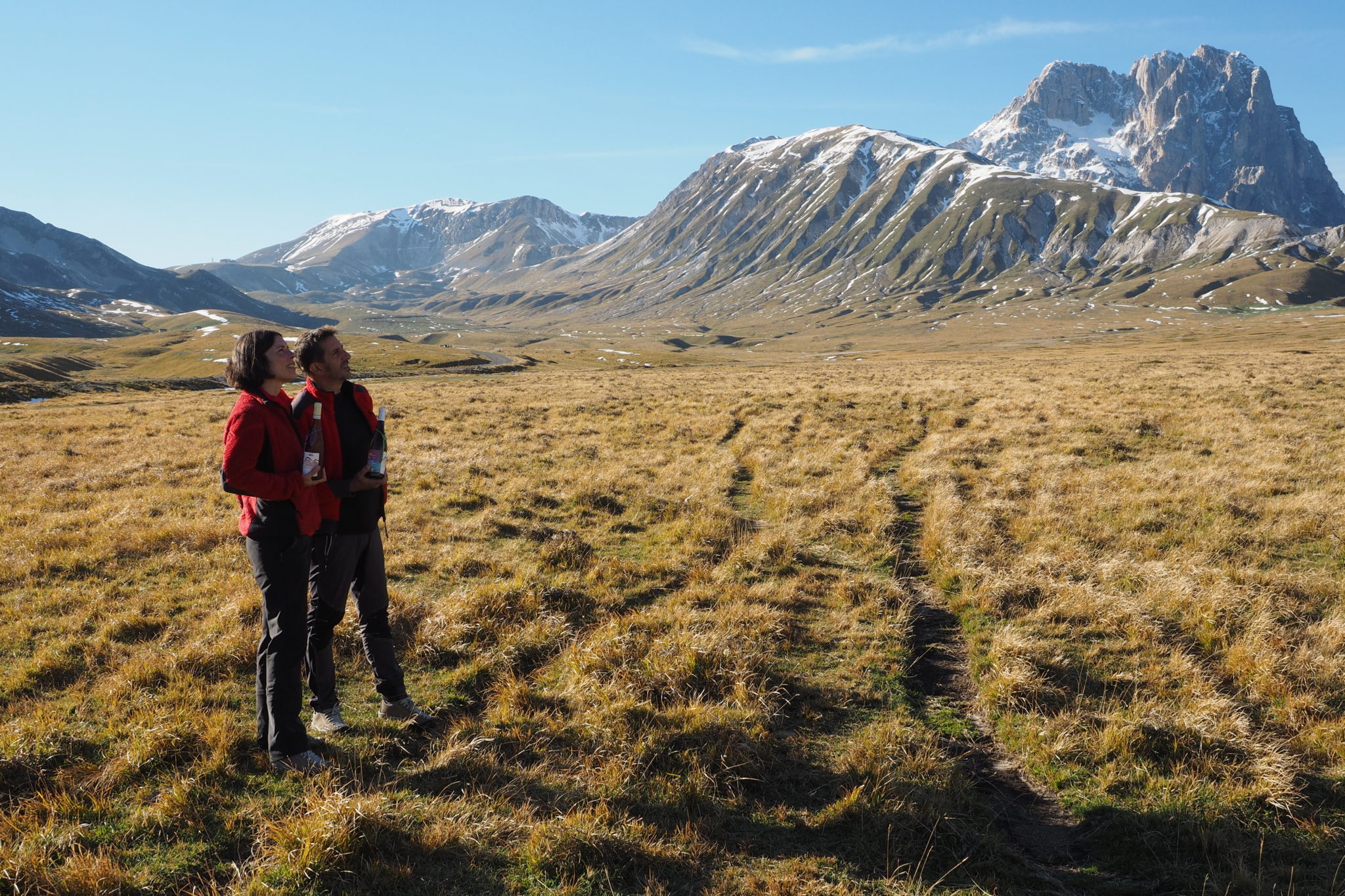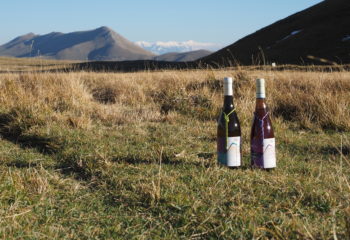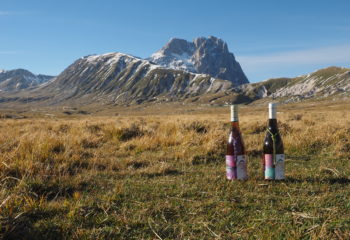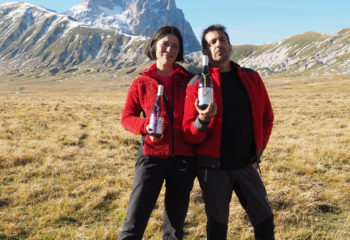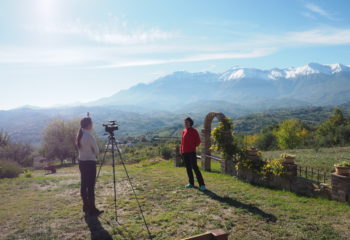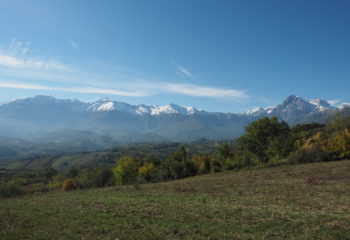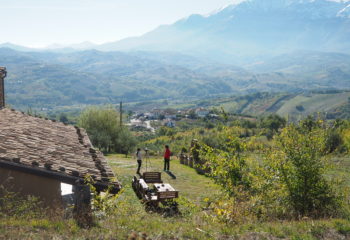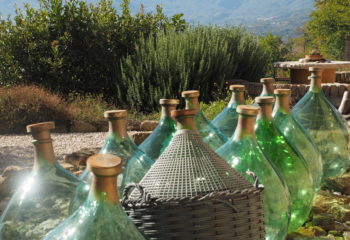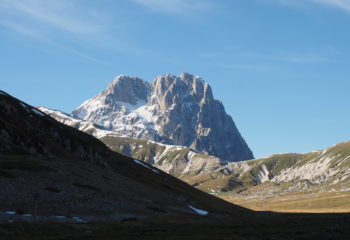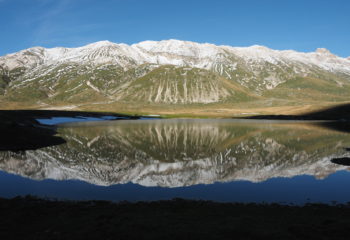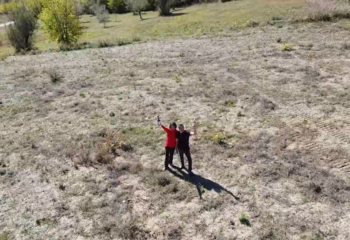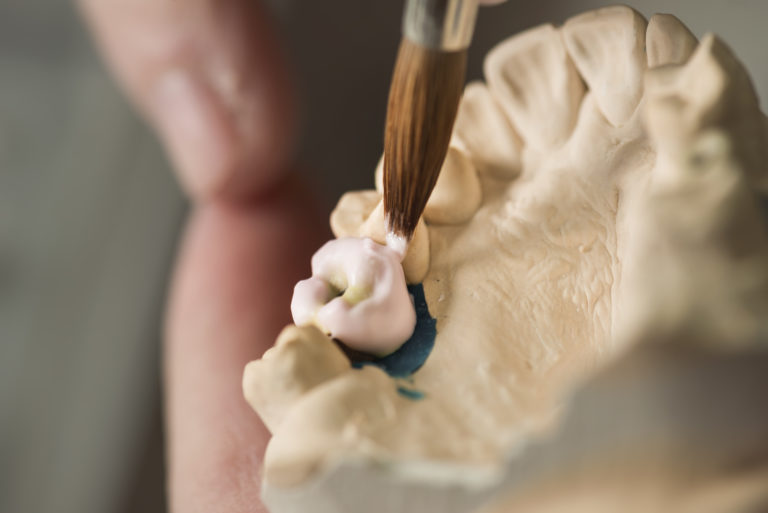Leggi la versione italiana
When we speak of magnetism, that force of attraction of an element, or of a place like this… Bruno Carpitella and Lorena Lucidi, he from Rome, she originally from Abruzzo, from Montorio in the province of Teramo, found a way to capture that magnetism and transform it into an experience: that of their wine which, left to hibernate beneath the snow for a whole winter, when it sees the light again is enriched with unique aromas. Partners in the Pendeche, Vini d’Altura company, founded by them – a couple in life as well. In 2019 Bruno and Lorena take part in the Premio Cambiamenti, the recognition for innovative thinking in new Italian companies promoted by the CNA, the 2021 final of which will be held in Rome on 19 November.
“Pendeche”, from the name of the old shops in the old town centre, was born as a game: when Bruno, as a boy, left a bottle of wine under the snow and the following year returned to savour it.
“During the winter, these bottles undergo a process that allows them to transform into something else,” Lorena explains. “Longevity is one of the characteristics that the aged wine assumes, as well as the typical hints of the mountain: moss, limestone, even spring water.” It is the land that gives the wine these characteristics. “The process only occurs in certain specific areas of this mountain here,” says Lorena, pointing to the Gran Sasso massif behind her. “We experimented in various other mountains of Abruzzo and in the Alps. But the results weren’t the same.”
With the support of the local CNA, in 2016 Bruno and Lorena obtained a loan to purchase mobile cellars. Bottles from selected vines, tested one by one, are stored inside them. All this has to happen right before the great snowfall of the year. Not some time before, but above all never after. “In winter the road to get here is closed to traffic until the following spring,” Lorena points out. “Metres and metres of snow make it impassable. A mistake with the weather forecast, and the whole vintage is at risk.”
Throughout the winter the mobile cellars are completely covered in snow and this guarantees a constant temperature that allows the wine to continue to transform. And to become Vino d’Altura (Upland Wine).
The Covid emergency requires a rethinking of strategies, and new projects appear: no longer just wine. And no longer just native vines. This is how the ageing of extra virgin olive oil under the snow is born. And thus they arrive at “transhumance wine”.
“In addition to ageing Abruzzo wines, we’ve expanded our selection to include reds and whites from Etna, Morellino di Scansano, Negramaro, Nebbiolo, Valdobbiadene and other northern wines.” The result? “Let’s take the case of the Sicilians: at the end of this ageing process the wine has two characteristics, that of the volcanic soil of the plain and the calcareous one, in which it was aged.”
The wine comes from the selected cellars and returns there aged as a Vino d’Altura, shown on dedicated displays. There are only 1,600 bottles destined for a small and exclusively Italian niche market. “The foreigner who wants to taste Vino d’Altura has to come to Italy, to one of the wineries scattered from Sicily to Piedmont.”
With Bruno and Lorena, we climb up from the hills of Teramo to reach the Gran Sasso, a place chosen after careful research, unique in the world for its characteristics. This is how these bottles undertake their own transhumance every year.
A cura di Paola Toscani

